Our Mission
North Carolina Sustainable Energy Association (NCSEA) is the leading 501(c)(3) non-profit organization that drives public policy and market development for clean energy. Our work enables clean energy jobs, economic opportunities, and affordable energy options for North Carolinians.
NCSEA works with its members and partners to transform our state and region’s energy system through market innovation and policy advocacy primarily in ten clean energy technology sectors: alternative fuel vehicles (primarily electric vehicles), biogas, energy efficiency, energy storage, geothermal, hydropower/marine, smart grid, solar, and wind.
NCSEA approaches its work in an evidence-based and collaborative manner and that focus is informed by our diverse community of energy industry leaders, utilities, customers, and innovators. For over forty years, our mission-driven business model has furthered the transformation of North Carolina energy policy, markets, and systems that create an affordable, resilient, and secure clean energy future.
NCSEA is a leading organization of individuals, businesses, government, and nonprofits interested in North Carolina’s sustainable energy future.
Our mission is to drive policy and market development to create clean energy jobs, economic opportunities, and affordable energy that benefits all of North Carolina.
Our Vision
We envision a future where North Carolina’s clean energy economy leads the nation and serves as a model for other states. Together with our membership, NCSEA is blazing the path toward this vision, where the possibilities and benefits for our state and local economies are bountiful, including:
- Economic development opportunities
- More affordable consumer bills
- Job growth
- Market exports
- Local tax base expansion
- Improved quality of life and business climate
- Our goal is to cultivate a robust clean energy ecosystem that unifies and benefits all of its stakeholders: consumers, businesses, the clean energy industry, and utility energy providers.
Our Members

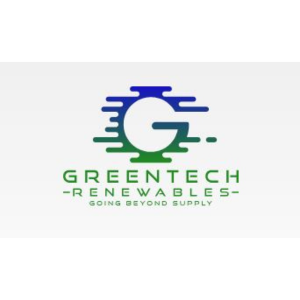


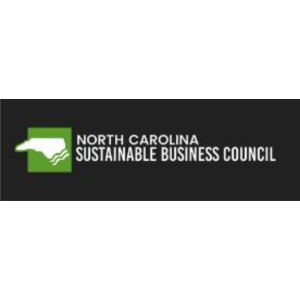
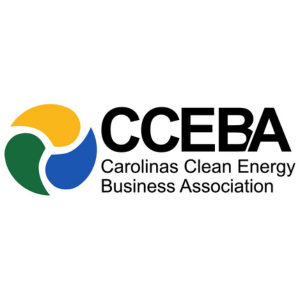


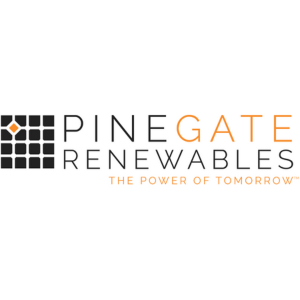
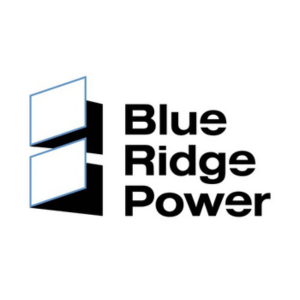
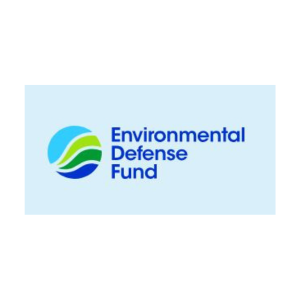


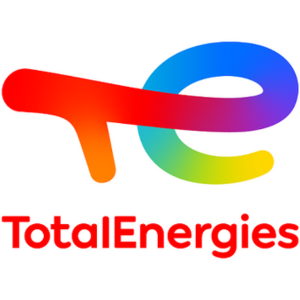


Our Story
1978
NCSEA was founded.
In response to the oil crisis, NCSEA’s founders came together to create an organization to transform NC’s energy economy.
1970s-2000s
NCSEA members conducted educational tours that demonstrate ways to save energy and money.
1990
North Carolina adopted the five-year Renewable Energy Investment Tax Credit (REITC) and approves a net metering pilot program for rooftop solar.
2002
NCSEA changed its name from ‘Solar’ to ‘Sustainable’, signifying the transition to approaching energy as a dynamic system rather than a single resource.
2003
NCSEA was the lead advocate in creating NC GreenPower, the nation’s first voluntary green power pricing program supported through donations.
2004-2005
NCSEA worked with utilities at the NC Utilities Commission making it possible to use renewable energy, through the establishment of a grid interconnection standard and net metering.
2003-2016
North Carolina jumped from 47th to 2nd in installed solar power generating capacity in the U.S.
2007-2016
NCSEA conducted the North Carolina Clean Energy Industry Census, the first publication of its kind, to measure NC’s annual clean energy industry growth.
2012-2015
Despite misinformation, NCSEA provided evidence-based information on how clean energy policy has driven down costs and is beneficial to all North Carolinians.
2015-Present
NCSEA introduced new Utility Solutions Program in 2015 and still engages utilities one-on-one to find data-driven solutions and regulation.
2016-Present
In 2016, NCSEA launched and still maintains programs, products, and services designed to make clean energy mutually beneficial to consumers, utilities, and industry.
2015-Present
NCSEA introduced new Utility Solutions Program in 2015 and still engages utilities one-on-one to find data-driven solutions and regulation.
2016-Present
In 2016, NCSEA launched and still maintains programs, products, and services designed to make clean energy mutually beneficial to consumers, utilities, and industry. North Carolina’s path to affordable clean energy continues to increase as NCSEA adds more clean energy resources to its least-cost energy mix.
2017
House Bill 589 (HB589)
NCSEA led the negotiation and passage of HB589, the first comprehensive, bipartisan energy legislation for North Carolina in a decade. Importantly, HB589 includes several policies that effectively increase our state’s clean energy requirement from the original 12.5% to now 17.5% by 2021.
2017
NCSEA advocated for clean energy customers’ options in the Duke Energy Rate Case. After Duke Energy Progress filed its rate case, NCSEA’s regulatory team focused on three areas of opportunity for clean energy in the utility’s proposed rate structure: (1) fair rate design that continues encouraging clean energy adoption; (2) customer access to their energy usage data; and (3) thoughtful and impactful grid modernization
2017
EV infrastructure charges up!
Following months of convenings and discussion, NCSEA’s Electric Vehicles Working Group, in a letter to Gov. Cooper, recommended that all 15% of funds available to North Carolina from the Volkswagen settlement be used for EV charging stations and infrastructure. Our comments were well-received: 78% of public comment respondents agreed.
2017
NCSEA joined as a partner in a project called Powering Energy Efficiency and Impacts Project Framework (PEEIF) funded by the U.S. Department of Energy’s Cities Leading Through Energy Analysis and Planning (Cities-LEAP) project.
2018
Women in Clean Energy
Women in the clean energy industry face a unique set of challenges, as well as opportunities. Led by some of the most influential women behind North Carolina’s clean energy economy, NCSEA launched our Women in Clean Energy group in early 2018, which convenes regularly to dialogue about issues and identify solutions.
2018
We re-affirmed our commitment to an equitable clean energy future. The NCSEA team engaged in an intensive two-day racial equity training, where we opened ourselves up to the realities of structural racism and learned how to apply a racial equity lens to our daily work. We also formalized our Equity, Diversity, and Inclusiveness Program with a program manager and representatives from each NCSEA core team to lead the organization’s work.
2018
NCSEA created a Solar Business Code of Conduct, which all of our members working on residential and commercial solar are required to sign. By signing our code of conduct, these businesses commit to upholding the highest professional standards of the industry—strengthening the relationship between advocates, consumers, and businesses.
2018
The Vision Program
The NCSEA team, along with our Energy Landscape Committee—a group of 25 members and partners from across three areas of our clean energy system—convened numerous times over the course of 2018 to dialogue on a path forward; creating several principles which will guide the Vision Program beyond 2018.
2018
NCSEA laid the groundwork to help North Carolina achieve the goals set out by Governor Cooper’s Executive Order #80.
2018
We launched our Energy Solutions Reserve Fund (ESRF), to ease the disproportionately high cost of energy in the most disadvantaged areas of our state. Utilities enrolled in our ESRF to receive marketing, and data analytic services, as well as support for home energy audits provided to utility customers.
2018
NCSEA and its partners protected the interests of North Carolina energy consumers and businesses by preventing Duke Energy from securing a 50% rate increase over the next ten years.
2019
We released a report demonstrating that Duke Energy’s status quo is no longer the cheapest energy option for North Carolinians—and it is certainly not the cleanest. This study and associated alternative partial Integrated Resource Plan (IRP) proposal was a huge boon to NCSEA’s work at the North Carolina Utilities Commission during Duke Energy’s IRP process. Ultimately, the North Carolina Utilities Commission accepted only the 2019-2020 plan—requiring Duke Energy to re-evaluate and present a different (hopefully cleaner and cheaper) option for 2021 and beyond
2019
We saw Senate Bill 377 (proposed wind moratorium) undergo a major overhaul and ultimately die after extensive negotiations among legislators and partners—saving North Carolina’s bourgeoning wind energy landscape.
2019
We celebrated over 40 years of NCSEA by bringing together our friends, champions, and partners for a night of fun at Our Powering our Future Gala.
2019
NCSEA launched the Squeaky Clean Energy Podcast, with over 9,000 plays with listeners from over 50 countries.
Subscribe2019
In July 2019, we enacted a policy to encourage each of us in the energy community to think critically about whose voices are heard most—and those whose are not. The policy states NCSEA will only sponsor, host, or co-host an event that has a racial, ethnic, and gender diverse speaker line-up.
Learn more.2019
We fought tirelessly to keep Senate Bill 559 (Duke Energy’s multi-year ratemaking bill) from becoming law.
2020
Renewable Energy Database
Using the Renewable Energy Database (REDB), the NCSEA team diligently tracked the development of clean energy systems throughout North Carolina. This information served particularly useful in our Monthly REDB ROPC Reports during 2020 as we watched carefully to measure the impact of COVID-19 on the clean energy industry in our state. NCSEA is the only organization in the Southeast to maintain a database of this type.
2021
Executive Order 218
Executive Order 218 (EO218) sets North Carolina’s first offshore wind energy procurement targets of 2.8 gigawatts by 2030 and 8.0 gigawatts by 2040, as well as directs various state agencies to advise on policy and coordinate around economic development.
2021
NCSEA Merges with NCBPA
North Carolina Sustainable Energy Association (NCSEA) announced the merger of the North Carolina Building Performance Association (NCBPA) with NCSEA—bringing together two of the leading voices in North Carolina’s clean energy transition. Conversations about the consolidation of the two nonprofit organizations has been ongoing for several months, and as of July 1, 2021 the NCBPA name, brand, and membership will be fully absorbed by NCSEA. This merger represents an exciting opportunity for two energy leaders in North Carolina’s clean energy landscape to further strengthen their collective impact under the NCSEA name.
2021
House Bill 951: Energy Solutions for North Carolina
On Oct. 13, 2021, Gov. Roy Cooper signed House Bill 951 Energy Solutions for North Carolina (HB951) into law, enacting a decade’s worth of energy policy to come. This bipartisan legislation–borne of a lengthy stakeholder process initiated in the North Carolina House of Representatives and culminating with the release of a compromise bill negotiated between Senate leader Phil Berger and Gov. Cooper–will alter North Carolina’s energy policy landscape in a number of significant ways. Covering key legislative issues from Carbon Reduction to Regulatory Reform, HB951 packs a lot of policy into a short piece of legislation. Read NCSEA’s thoughts and the full breakdown of the bill on our website.

EQUITY IN POWER
Like many employment sectors, the clean energy industry does not currently reflect the demographics of society at large. The vision of the clean energy future must be inclusive and diverse. To be sustainable and resilient, North Carolina’s energy system and economy must be inclusive of all. In order to truly live our mission and enable the growth of a robust North Carolina clean energy community, NCSEA must be a leader in improving inclusiveness across the clean energy industry. Through NCSEA’s commitment to ED&I, we aim to capture the ideas, perspectives, and voices that encompass diversity of North Carolinians. To outline NCSEA’s commitment to a more inclusive energy economy, the Board of Directors and staff collaborated to develop a series of Equity, Diversity, and Inclusion Guiding Principles. These principles are pillars of NCSEA’s overall mission and represent our vision for an inclusive energy system and clean energy economy.
CAREERS AND INTERNSHIPS
Currently, we do not have any open positions.
